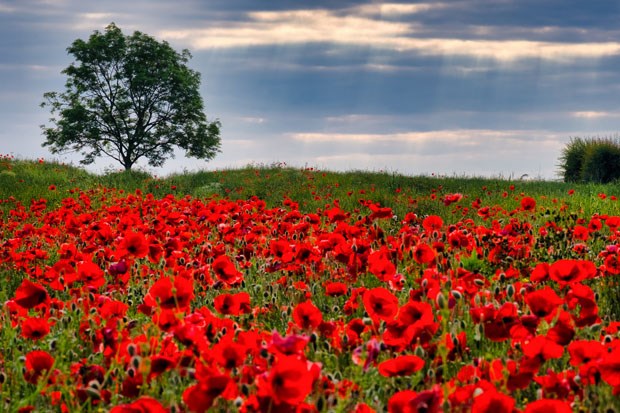Ten thousand military planes were flown from Canada to Britain during the Second World War. Civilian pilots, many of them women, were paid $500 to $1,000 to deliver these planes over the worn torn Atlantic, with 20 per cent dying on route.
There were firefighters, doctors, nurses and “Rosie Riveters” working at the front and in the war factories here at home. My father was one of these Canadian civilians who contributed to the war effort and I would like to honour him and the others in this Remembrance Day column.
In a special to the Globe and Mail on dad’s death in 2004, Tom Hawthorn wrote a detailed obituary saying, “Don Hings was a self-taught electronics wizard who modified his two-way radio into the walkie-talkie that saved the lives of untold Allied soldiers in the Second World war. A Toronto newspaper’s headline captured the awe: ‘Miraculous walkie-talkie like quarterback to army’. To radio men it is a ‘midget miracle… A tiny but tough combined broadcasting and receiving set, easier to operate then a hand-telephone set, light but tough enough for paratroopers to take along in aerial assaults on enemy airfields, versatile enough so, in combination, they become a military network of broadcasting and receiving stations for attacking troops’.”
Dad used a Dictaphone for his reports and correspondence when I worked as his secretary in the 1960s. He also dictated stories of his adventures, which I transcribed.
Here is a small excerpt from his War Stories: “On the British Home Front – 1941: On the train going to London a large group of Navy Sailors squeezed in with an assortment of passengers. They were mostly common Naval Seamen, youngsters who had been in a naval skirmish and their cockney banter was hard to follow. They apparently were on a leave home authorized by their medic after they had spent time in the sea.
“One said to another, ‘I thought I was goin' to bloody well freeze and I kep' wavin' so som'un might see me. I figured I was fish chuck. I don' know if the ol’ place still has a roof on it’. Then one leaned over and said, ‘The birds will be there’, and they all laughed and slapped each other while cigarettes were handed around.
“I checked in at Canadian Military Headquarters at Canada House. Upon being escorted to my room I noticed a large bomb hole existed where the neighbouring room should have been, but I was too weary to care (after a 22-hour flight) and was soon asleep.”
Dad’s contribution to the war effort was major, and despite being made a lifetime honourary member of the Canadian Signal Corp, he did not qualify for any veterans’ benefits. He even had to sue the government for the rights to his patent in the case of Hings versus the King, which he won. The settlement was $5,000, which only covered his legal fees. No matter, he remained patriotic and continued his life of invention, acquiring over 50 patents in electronics and geophysics.
Here’s a gigantic thank you to all the civilians who contributed their blood, sweat and tears, and many, their lives. While we remember and honour the sacrifices of our uniformed soldiers let us also not forget the huge contribution made by civilians.
ML Burke retired from the health sector to work on issues such as affordable housing. She sits on the Delta Seniors Planning Team and Delta’s Community Liveability Advisory Committee.



